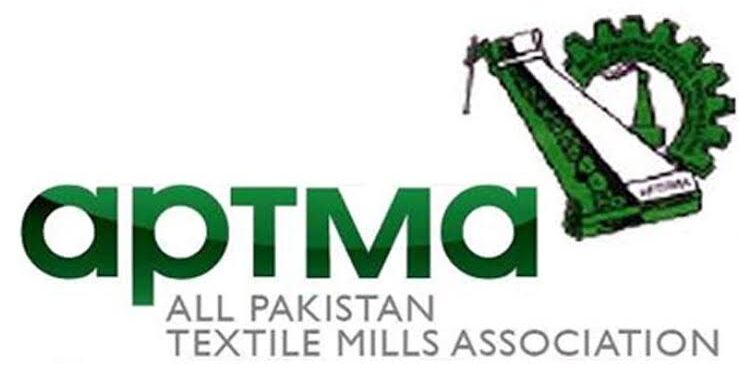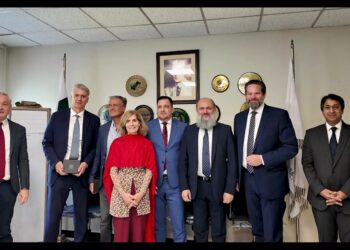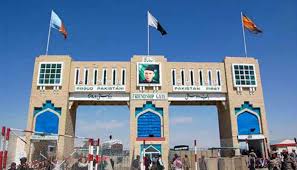ISLAMABAD : A high-level delegation from the International Cotton Advisory Committee (ICAC), headed by Mr. Eric Trachtenberg, Executive Director of ICAC, visited the All Pakistan Textile Mills Association (APTMA) headquarters in Islamabad on February 2, 2025 . The delegation engaged in comprehensive discussions with APTMA leadership and representatives from the Pakistan Central Cotton Committee (PCCC) on the state of the cotton and textile value chain in Pakistan.
The meeting was attended by Shahid Sattar, Secretary General of APTMA; Kanwar Usman, Head of Textiles at ICAC; Dr. Yousaf Zafar, Vice President of PCCC; Dr. Ahmad Waqas from PCCC; and the APTMA Research Team. The discussions focused on the challenges and opportunities facing Pakistan’s cotton and textile sectors.
Shahid Sattar highlighted the critical issues plaguing the cotton value chain, particularly the detrimental impact of the 18% General Sales Tax (GST) on domestic cotton supply. He emphasized that the GST has been a significant factor contributing to the decline in cotton production, undermining the competitiveness of local spinning and weaving industries. “Domestic inputs for exports face an 18% sales tax, while imports under the Export Facilitation Scheme (EFS) are duty-free and sales tax-free,” Mr. Sattar noted.
He further explained that exporters purchasing local inputs are burdened with sales tax refund delays exceeding six months and receive only partial refunds of about 70%. This situation has resulted in sunk investments in the millions of USD, the loss of thousands of jobs, and the depletion of scarce foreign exchange reserves. “A level playing field requires that EFS imports of cotton, yarn, and other intermediate inputs be subjected to the same sales tax regime as local products,” Mr. Sattar asserted. He also recommended restoring the EFS to its June 2024 structure and adopting India’s model of graduated sales tax rates to minimize financial discrepancies.
Mr. Eric Trachtenberg expressed deep concern over the issues raised and reiterated ICAC’s commitment to supporting Pakistan’s textile industry through informed policymaking. He announced ICAC’s intention to publish a high-level policy paper addressing these challenges and offering strategic recommendations to bolster the sector.
Kanwar Usman emphasized the role of the Ministry of Commerce in resolving these issues to promote textile exports and support Pakistan’s cotton farmers. Drawing parallels with Bangladesh, he noted that similar challenges exist there, but ICAC is actively supporting its member countries, including Pakistan, in navigating these difficulties.
The ICAC delegation lauded APTMA’s achievements and its proactive role in reviving cotton production in Pakistan. Recognizing APTMA’s efforts in promoting textile exports, the delegation expressed interest in publishing a comprehensive report on Pakistan’s cotton supply chain. This report will highlight the socio-economic impact of declining cotton production, particularly on rural communities and female cotton pickers.
Both parties underscored that without uplifting and reviving the cotton crop, Pakistan’s economy cannot achieve sustainable growth. Cotton remains the cornerstone of the agricultural sector, being the only cash crop with immense value addition potential. Strengthening the cotton industry is vital not only for improving the livelihoods of millions but also for driving growth across the entire agriculture sector and ensuring the country’s long-term economic stability.
Both esteemed organizations agreed on the importance of collaborative efforts to support the textile industry and ensure a sustainable supply of cotton. The meeting concluded with a shared commitment to safeguarding the livelihoods of millions of people connected to the cotton value chain and the broader textile industry in Pakistan. ENDS















